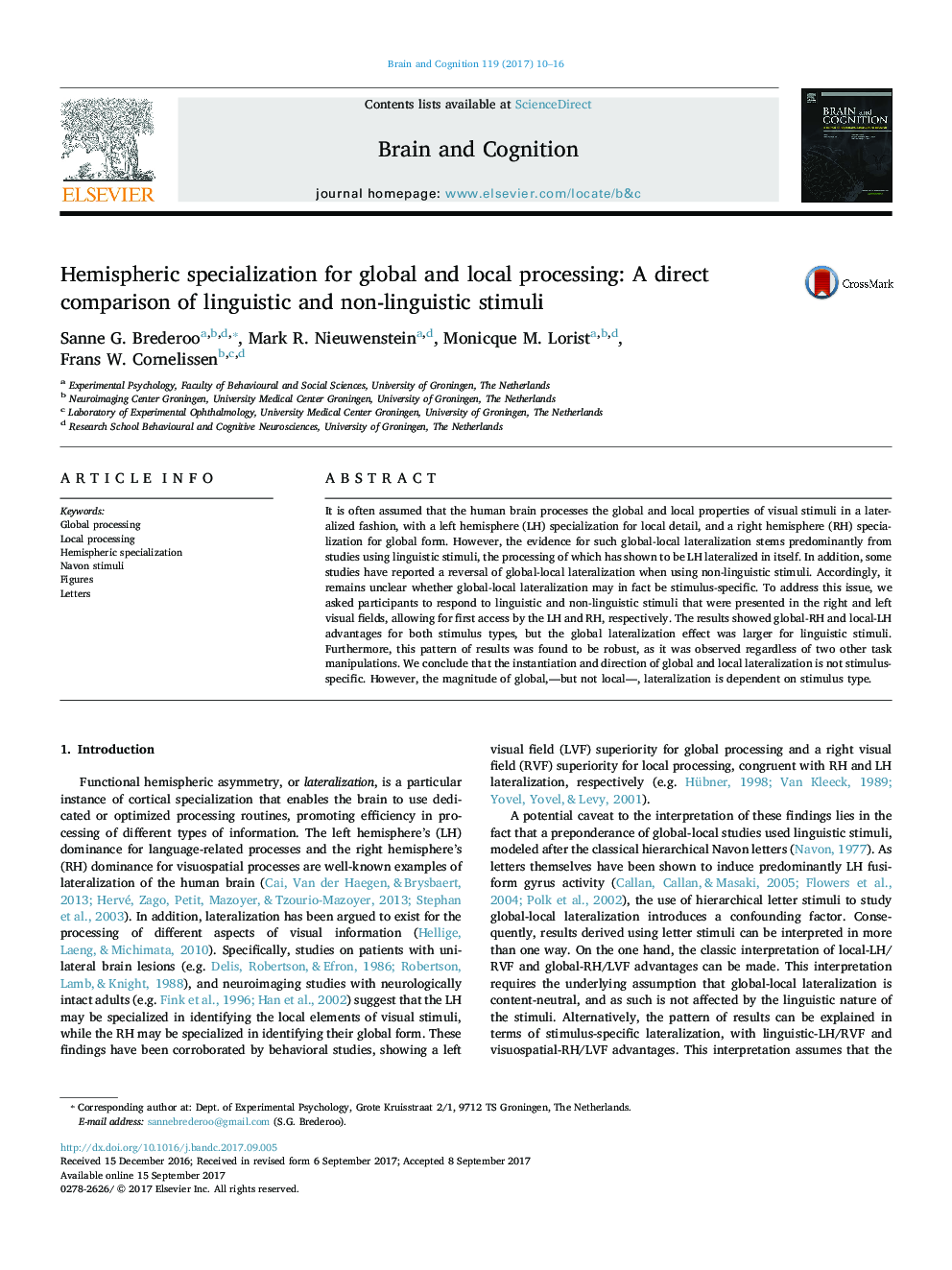| کد مقاله | کد نشریه | سال انتشار | مقاله انگلیسی | نسخه تمام متن |
|---|---|---|---|---|
| 5041048 | 1473952 | 2017 | 7 صفحه PDF | دانلود رایگان |
- The direction of global and local lateralization is not stimulus-specific.
- Global processing lateralization is more extreme for linguistic stimuli.
- Local processing lateralization is robust to changes in stimulus characteristics.
- Reversed global and local lateralization are likely due to confounding factors.
It is often assumed that the human brain processes the global and local properties of visual stimuli in a lateralized fashion, with a left hemisphere (LH) specialization for local detail, and a right hemisphere (RH) specialization for global form. However, the evidence for such global-local lateralization stems predominantly from studies using linguistic stimuli, the processing of which has shown to be LH lateralized in itself. In addition, some studies have reported a reversal of global-local lateralization when using non-linguistic stimuli. Accordingly, it remains unclear whether global-local lateralization may in fact be stimulus-specific. To address this issue, we asked participants to respond to linguistic and non-linguistic stimuli that were presented in the right and left visual fields, allowing for first access by the LH and RH, respectively. The results showed global-RH and local-LH advantages for both stimulus types, but the global lateralization effect was larger for linguistic stimuli. Furthermore, this pattern of results was found to be robust, as it was observed regardless of two other task manipulations. We conclude that the instantiation and direction of global and local lateralization is not stimulus-specific. However, the magnitude of global,-but not local-, lateralization is dependent on stimulus type.
Journal: Brain and Cognition - Volume 119, December 2017, Pages 10-16
